MTV Nishedh – Creating a content-led campaign for behaviour change
MTV Staying Alive Foundation and Viacom18 have launched a content-led campaign, called MTV Nishedh. At the core of the campaign is a 13-part series that narrates stories highlighting attitudes towards Tuberculosis, reproductive health, contraception, and nutrition. ‘Nishedh’ means to speak up, because most people afflicted with STDs or Tuberculosis are unwilling to seek help or have conversations regarding these issues due to regressive attitudes towards these problems. The series will go live on January 25, 2020, airing on MTV India, Colors Rishtey as well as on VOOT.
The MTV Staying Alive Foundation (SAF) was created to fund programs that drive HIV awareness and prevention, and also raise awareness about reproductive health. Over their 20-year existence, they have been involved in creating effective behaviour change campaigns to influence the youth using their bespoke model for effective storytelling.
The MTV Nishedh campaign was modelled after their award winning campaign, MTV Shuga, which was launched in several countries in Africa beginning from 2009. Shuga was a unique campaign that combined narrative storytelling centred on the sexual relationships between young people. The 360 degree mass media campaign reached 719 million households via television and 42 million people via digital. The learnings from the campaign have been adopted to drive the success of MTV Nishedh.
Viacom18 has funded the campaign through partnerships with the Children’s Investment Fund Foundation (CIFF), the David and Lucile Packard Foundation and The Centre for Social and Behaviour Change, Ashoka University along with The Bill & Melinda Gates Foundation, who are aligned with the cause of the campaign.
Johnson & Johnson’s involvement in the campaign is a part of their 10-year initiative to fight Tuberculosis in India, supporting the Government of India’s mission to eradicate the disease by 2025. The David and Lucile Packard Foundation and Children’s Investment Fund Foundation (CIF) fund initiatives that advance reproductive health and rights. The Gates Foundation, in association with Ashoka University, will evaluate the MTV Nishedh campaign on digital.
Marketing Strategy
While the centre of the campaign will be its 13-part series, it will be supplemented by an outreach and awareness programme led by digital and radio as well as peer to peer communication.
Before the campaign was launched, MTV SAF conducted formative research identifying the markets that were in most need of change. These were markets like UP, Bihar, Rajasthan and Mumbai. The research identified the behavioural trends among the youth audiences, their relationship with partners, parents and peers, which were fed into the content creation process. Once they created the scripts for the series, they shared them with select audiences for their feedback on the characters and the story.
The campaign leverages youth as influencers through their peer education. After filming the series, they sit with focus groups to show them the content. The subsequent conversations that are generated are compiled into teaching guides that will be used in the next 6-8 months to educate audiences. Viacom18 has roped in actor Bhumi Pednekar as the cause ambassador for the initiative. The actor will lead the conversation on digital platforms like Instagram, where she has a following of 3.8 million.
Georgia Arnold, Executive Director of The MTV Staying Alive Foundation and Executive Producer of MTV Nishedh, said that India and Africa are very similar in their cultural diversity, attitudes towards young people, and attitudes to women and reproductive health. Like in Africa, young people are seen but not heard in India, she said. “We are experts in behaviour change and operate as a small team outside London. For behaviour change to be effective, it is very important to integrate young people to drive the campaign,” she stressed.
Sudhanshu Vats, MD and CEO, Viacom18, added here, “Marketing is a challenge for a finite series. Most of our shows run over the course of thousands of episodes. Therefore, we’ve decided to mount this series during our primetime slots on weekends. You have to approach such a subject as a mainstream show and ensure that it is entertaining, otherwise the message won’t go through. Classic public service messages are not effective in creating behaviour change.”
Tuberculosis is a prevalent issue in India, where one person dies every minute from the disease. Johnson & Johnson, who are experts on the disease, have partnered with MTV Nishedh, providing market research and insights that have gone into the development of the campaign.
According to Dr Vandita Gupta, Head – Global Public Health, Infectious Diseases, Vaccines, & Metabolics at Johnson &Johnson, “Statistics will tell you that 2 million people are estimated to be afflicted by TB in the country, as per the India TB report. A metropolitan city like Mumbai is one of the worst affected by the disease, not just in India but across the globe. Since the disease is highly contagious, there is a stigma that keeps people from talking about it. If people find out you have TB, you could be ostracised from society.”
This is the second initiative where Viacom18 has addressed a hard hitting subject by packaging it as content. A year ago they experimented with a show called ‘Navrangi Re’, funded by the Gates Foundation and produced by BBC Studios. The show discussed the issue of fecal waste management in a humorous format. The show opened really well, although viewership was affected by TRAI’s new tariff order. However, Viacom18 has hinted that a second season is likely.
When asked how such multi-tier partnerships to bring social change is a conscious strategy by the broadcaster, Sonia Huria, Head - Corporate Marketing, Communications & Sustainability, Viacom18, explained, “More than a conscious strategy, I think it is an ingrained thought process at Viacom18. Our mission is to connect every story to its audience and every audience to its story. And over the last 12 years, we have created stories that resonate with our audience across platforms. Interestingly, some of our biggest successes have been stories that speak of societal issues or regressive societal norms – be it ‘Balika Vadhu’, ‘It’s Not That Simple’, ‘Angels of Rock’, ‘Toilet: Ek Prem Katha’…the list goes on. Projects like ‘Navrangi Re!’ and MTV Nishedh are natural extensions of this philosophy of using content to amplify social change. What encourages me is how more partners are recognising the relevance of this approach and reaching out to us to use entertainment to bring forth such stories of social impact.”
Evaluating behaviour change
MTV SAF’s Arnold shared the real and direct change brought about by the MTV Shuga initiative, saying, “We have evaluated the impact of MTV Shuga over the course of 10 years. The World Bank conducted a randomised control trial looking at 5,000 young people in Nigeria. Half of them were watching MTV Shuga and the other half were watching a youth drama show. Both groups were given vouchers for youth friendly testing centres for HIV and asked 100 questions that were markers for STDs. We came back to them 6 months later and asked the same 100 questions. The group that watched MTV Shuga doubled their HIV testing using the vouchers and bio markers showed that young women got 50 per cent less chlamydia after watching the series. The World Bank concluded in their report that for every dollar spent on MTV Shuga, you get $150 worth of health benefits. The evaluation was conducted by Professor Abhijit Banerjee, who recently won the Nobel Prize for Economics.”
The task falls on Ashoka University’s Centre of Social and Behaviour change to evaluate MTV Nishedh campaign.
Purnima Mehrotra, Associate Director - Evidence and Learning, Center for Social and Behavior Change (CSBC), Ashoka University, took us through the evaluation process and said, “We have two objectives for this digital campaign. One is to amplify the messaging from the TV show on digital and social media. The second is to build communities of young people to talk about issues of contraception with both married and unmarried couples. Our evaluation agency, Quilt, will look at search engines for a spike in the topics being discussed on social media and create relevant content through MTV and our vendor, Dentsu Webchutney, and push it through SEO on Google.”
“Behaviourally, our aim is to get young people to access these services and products provided by private vendors and the Government of India. This is a challenge because people are not able to talk about it or access the services or products they need to resolve these problems. We are going to have a behavioural indicator online that will prompt the consumer with a message like ‘click if you are interested in finding out more’ connect them with a helpline number. We will be monitoring how many people use the helpline and the conversations that will be happening. That is our overall evaluation strategy,” Mehrotra concluded.


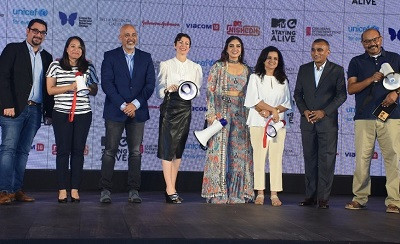
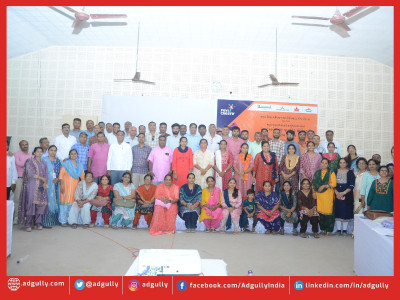
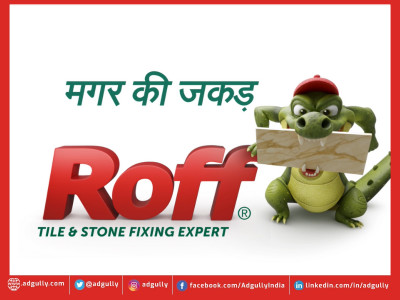
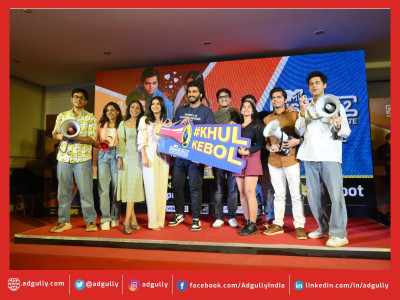
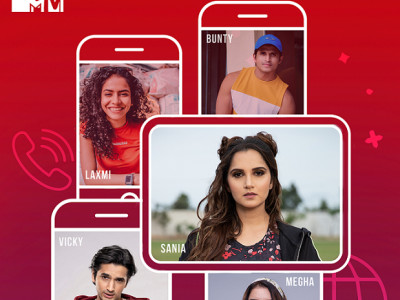

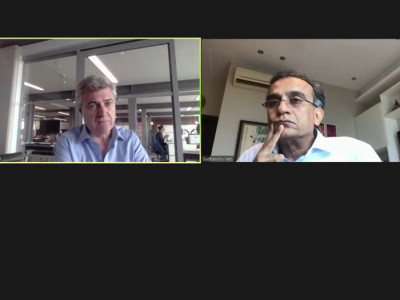
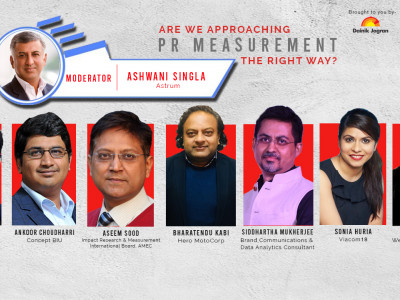
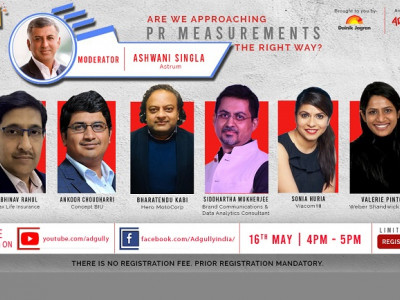




Share
Facebook
YouTube
Tweet
Twitter
LinkedIn